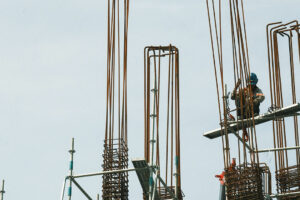FIVE MORE public-private partnership (PPP) projects worth around P28 billion are expected to be awarded this year and by early 2025, the government said.
This, as the state pushes the modernization of several airports to decongest the capital region and boost the tourism sector.
The Public-Private Partnership (PPP) Center in an e-mail said among the projects with a total estimated cost of P27.95 billion that are expected to be awarded in the second half or early in 2025 is the upgrade of the New Bohol International Airport in Panglao, Bohol province.
The Aboitiz group, through its infrastructure arm Aboitiz InfraCapital, Inc. secured an original proponent status (OPS) for the operations and maintenance of the Bohol airport for 25 years. A Swiss challenge is scheduled within the fourth quarter.
Also on the list of projects expected to be awarded within the year or by early 2025 is a 300-bed, state-of-the-art cancer hospital to be built within the compound of the University of the Philippines-Philippine General Hospital (UP-PGH) in Manila.
In April, NEDA said the UP-PGH Cancer Center project’s cost increased to P9.49 billion from P6.05 billion following changes in project terms.
Other projects expected to be awarded this year include the Bislig City Bulk Water Supply project, Bislig City Septage project and the Dialysis Center for the Renal Center Facility of the Baguio General Hospital and Medical Center.
The PPP Center said eight more PPP projects, with a total estimated cost of P270.65 billion, may also be awarded in 2025, “if all required approvals are secured by the respective implementing agencies by early next year.”
These include the upgrade, operation and maintenance of the Iloilo International Airport, Kalibo International Airport and Puerto Princesa International Airport.
The operations and maintenance of the Metro Manila Subway and North South Commuter Railway, as well as the rehabilitation, operations and maintenance of the Metro Rail Transit (MRT) Line 3 are also expected to be awarded next year.
Also to be awarded next year are the Boracay Bridge project and the Philippine Automatic Fare Collection System, the PPP Center said.
The Marcos administration has vowed to harness PPPs to boost Philippine infrastructure. In December, President Ferdinand R. Marcos, Jr. signed the PPP Code or Republic Act No. 11966, which amended the Build-Operate-Transfer (BOT) law to create a unified legal framework for all PPPs at the national and local levels.
The PPP Center said under the new law, PPPs are designed to respond to the needs of the country’s green transition, with the law itself and its implementing rules requiring climate resiliency and sustainability “as early as project development and project approval.”
“The use of green financing instruments as one of the alternative sources of PPP financing was also introduced,” it said.
The law allows performance-based payments, incentivizing private sector players to meet the environmental performance standards or indicators for their projects as set in their contracts, it added.
“The PPP Center is also working with development partners to translate these climate resiliency considerations, which are surfaced during project development and approval, into concrete key performance indicators that could be embedded in PPP contracts and objectively monitored during contract implementation.”
In his State of the Nation Address in July, Mr. Marcos said the government aims to complete 350 airport and seaport projects by 2028. — Kyle Aristophere T. Atienza


















